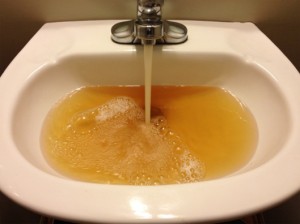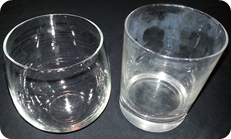What Every Connecticut Resident Needs to Know
When you live in Connecticut, it’s pretty safe to say that you may be dealing with some well problems. From iron to magnesium to calcium, the Connecticut soil is rich with many minerals, but you don’t exactly want them in your water well. Here’s a rundown of the most common well problems CT residents face, and why they matter.
 IRON
IRON
If you have grown accustom to red and orange stains in your appliances or on your pipes, then you may be dealing with an abundance of iron in your water well. While this is one of the well problems that is not directly harmful to your health, it stains everything it touches and can be difficult to clean up. This is one of the most common well problems because Connecticut’s soil has a much higher iron count than most of the country. Lucky us.
ACID WATER
When the stains you are noticing are blue or green in color, then the well problem you may be dealing with is acidic water. The CT Department of Public Health recommends that your water well have a pH between 6.4 and 10. But you can get stains at levels just under 7.0. Blue-green stains mean that your water is corrosive and it will damage your pipes. What’s worse, the damage from acidic water can’t be undone by simply neutralizing your water. However, if you can take control of the situation as soon as you notice the stains, you can at least prevent further damage from occurring.
MANGANESE
This mineral, often found in the rocks and soil in Connecticut, finds its way into the water naturally. In small doses, this is one of the least worrisome well problems. But at even miniscule amounts of 0.05 mg/l, it can make your water smell musty, leave black stains and and may even give your water a black tint.
 HARD WATER
HARD WATER
In addition to iron and manganese, your water supply may also be picking up some calcium and magnesium on its trek to your home. This results in white residue deposits on everything from your drinking glasses to your faucets. Plus, the buildup in your pipes makes your HVAC system less efficient, and hard water even dries out your skin and hair.
SEDIMENT/SAND
While the sand and other soil particles in your well water may be frustrating, they are not harmful to your health, which is the good news. But if you don’t filter them out of your water supply, they will likely cause clogs and excessive wear and tear to your pipes and appliances.
SULFUR ODOR
As far as well problems go, this is one you don’t want to mess with. Not only does it cause a rotten egg odor, but at really high levels (which is very rare) the sulfur can become both poisonous and flammable. Sulfur water can be difficult to trace, because sometimes you think it is coming from your well, but it may only be coming from your pipes, or even just from your hot water heater.
Are you wondering if your well water is plagued by any of these common well problems? At H2O Equipment Company, we are the experts in both testing and treating all of these water well problems. Contact us today to ensure your family’s well water is safe.
